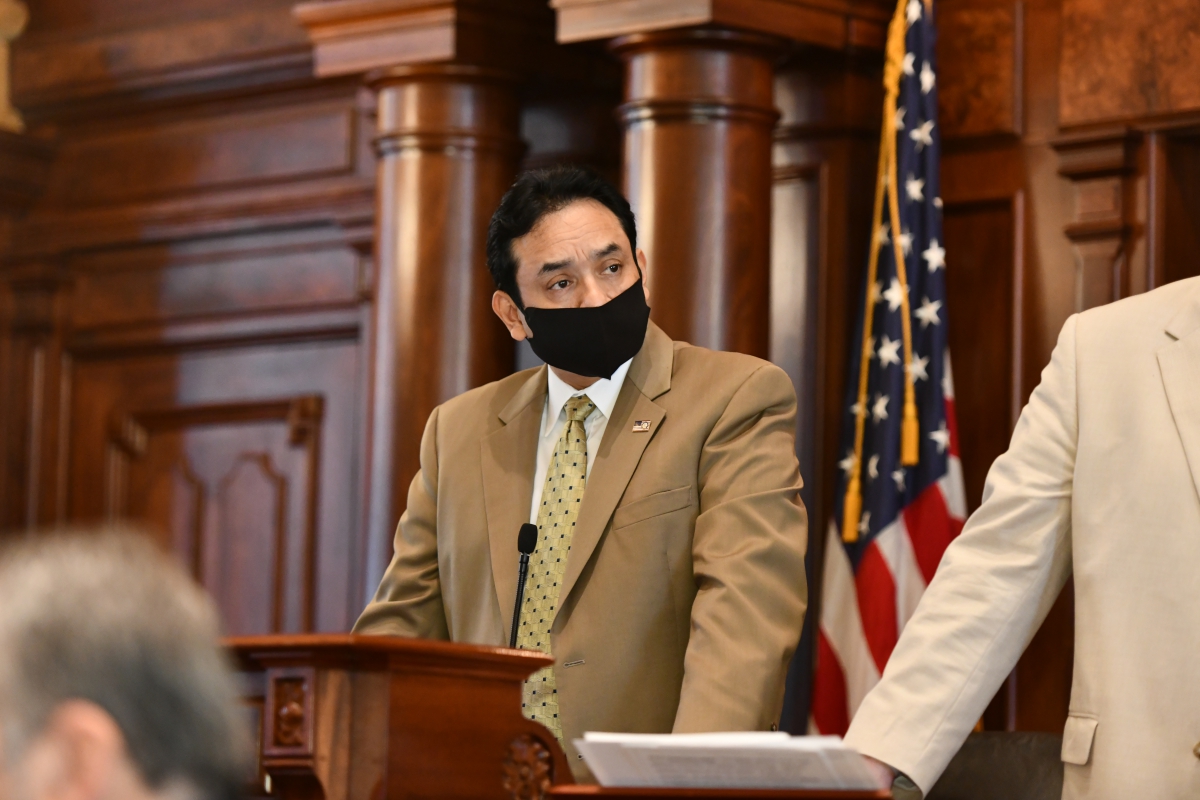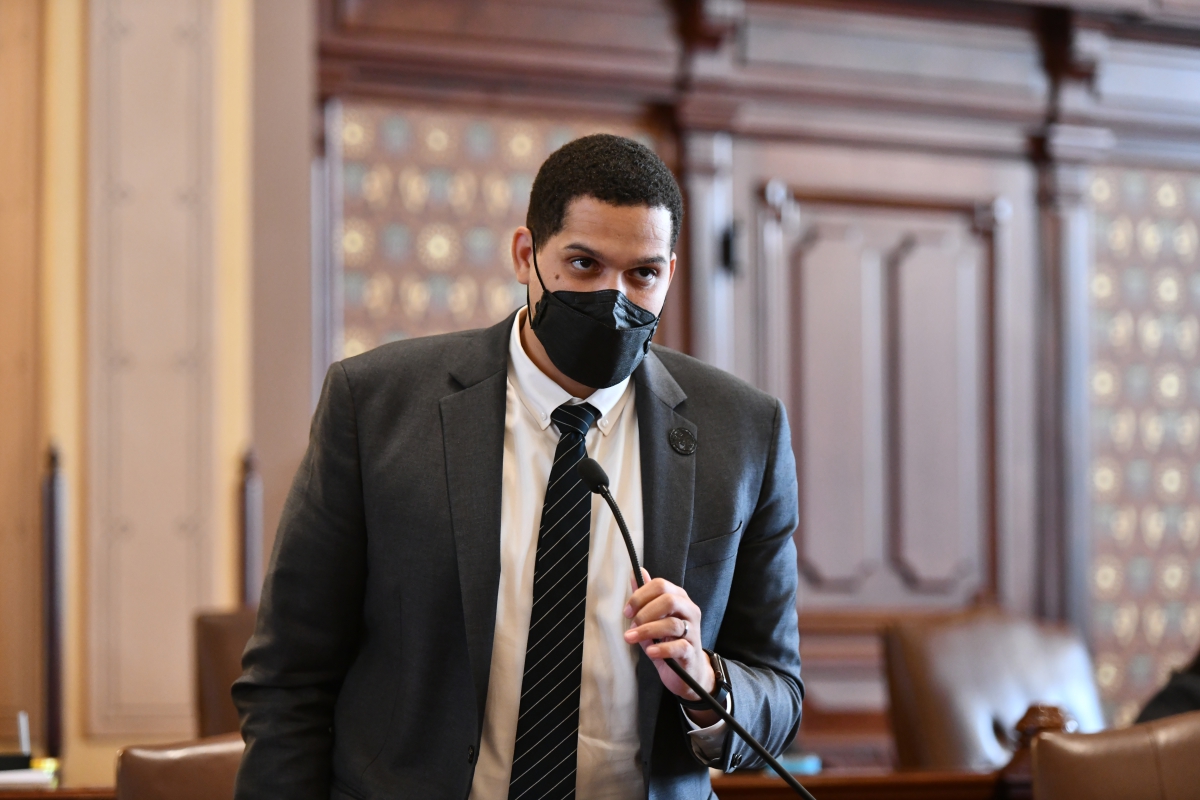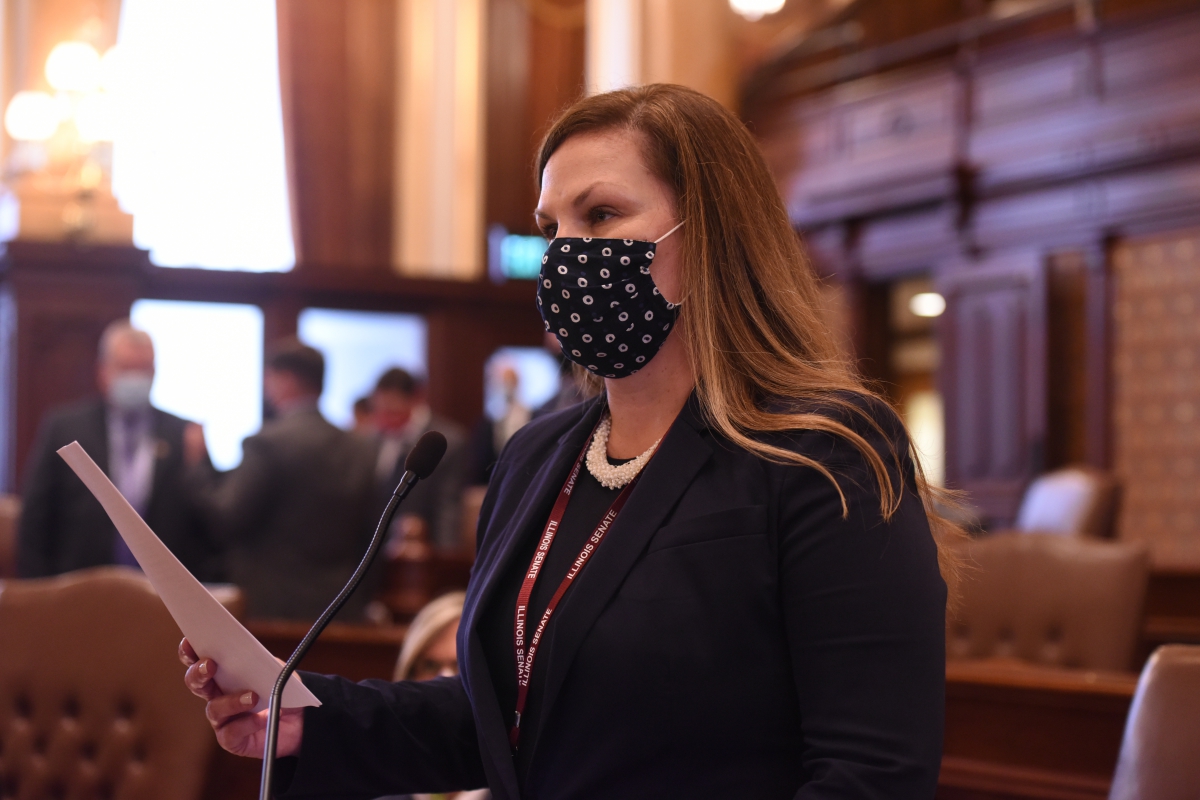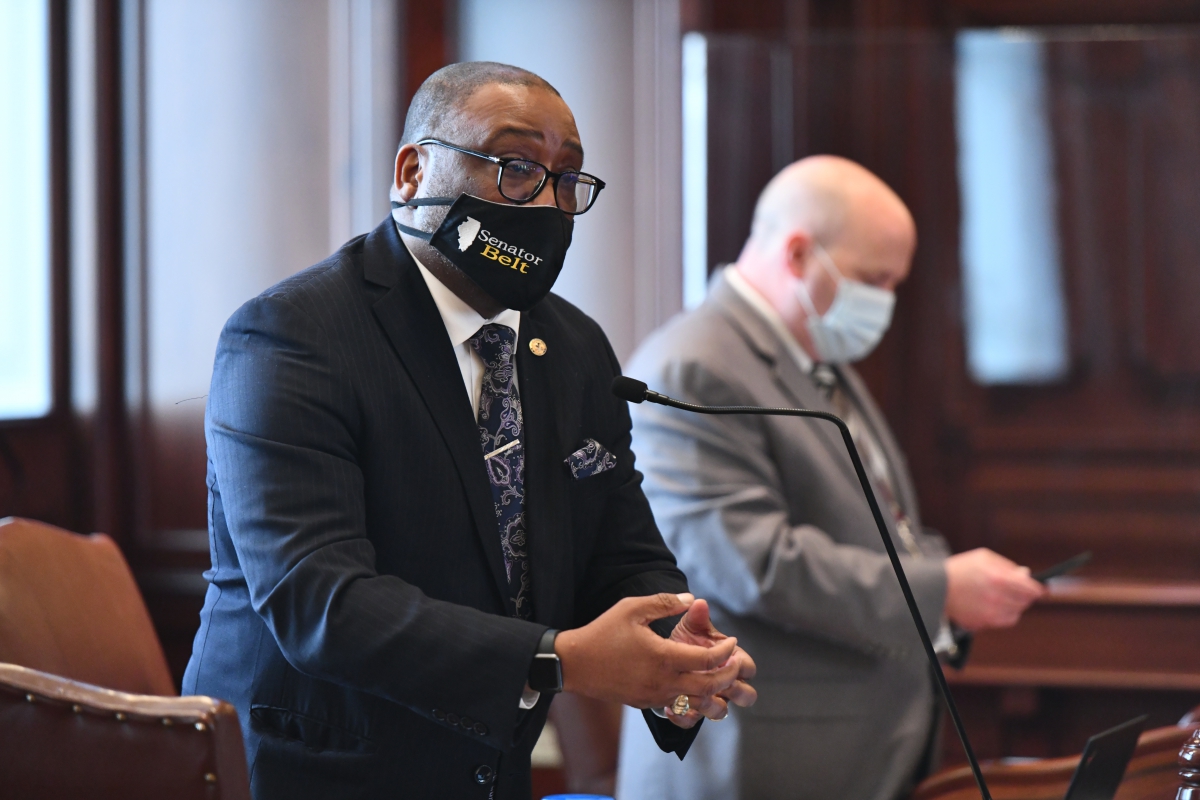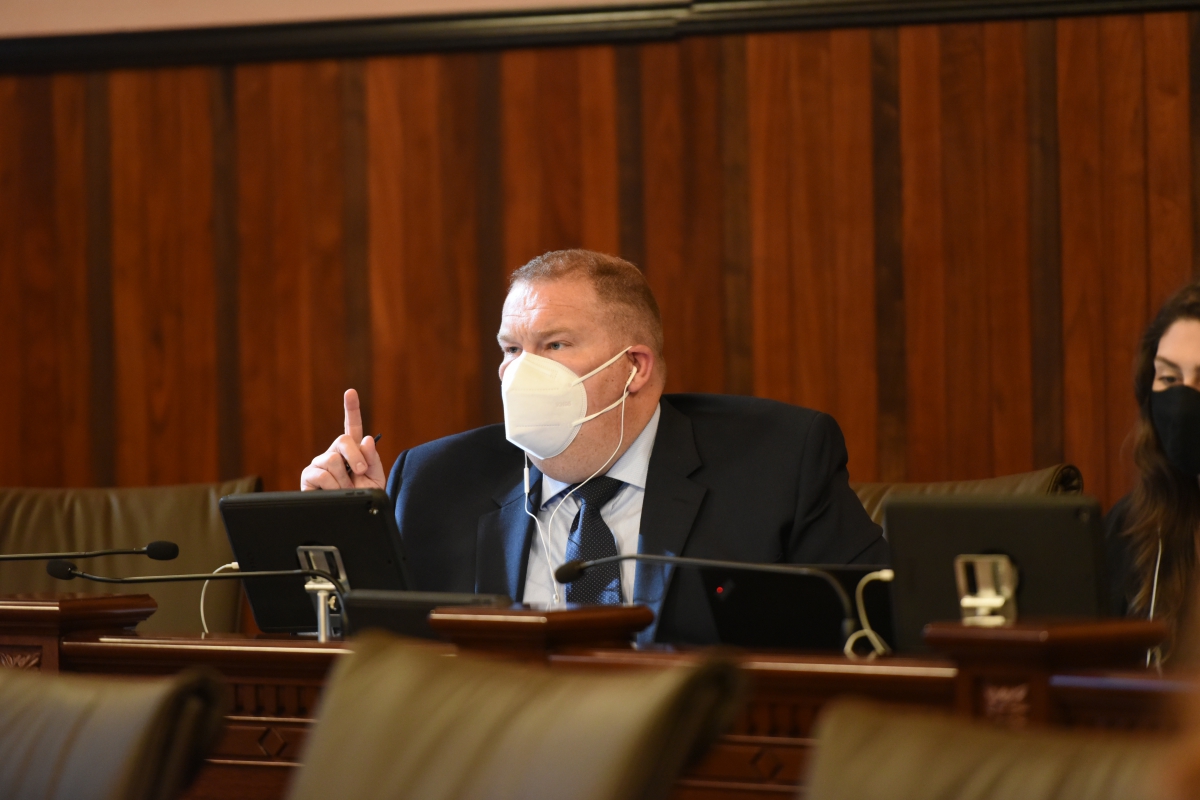- Details
- Category: Senator Rachelle Crowe News
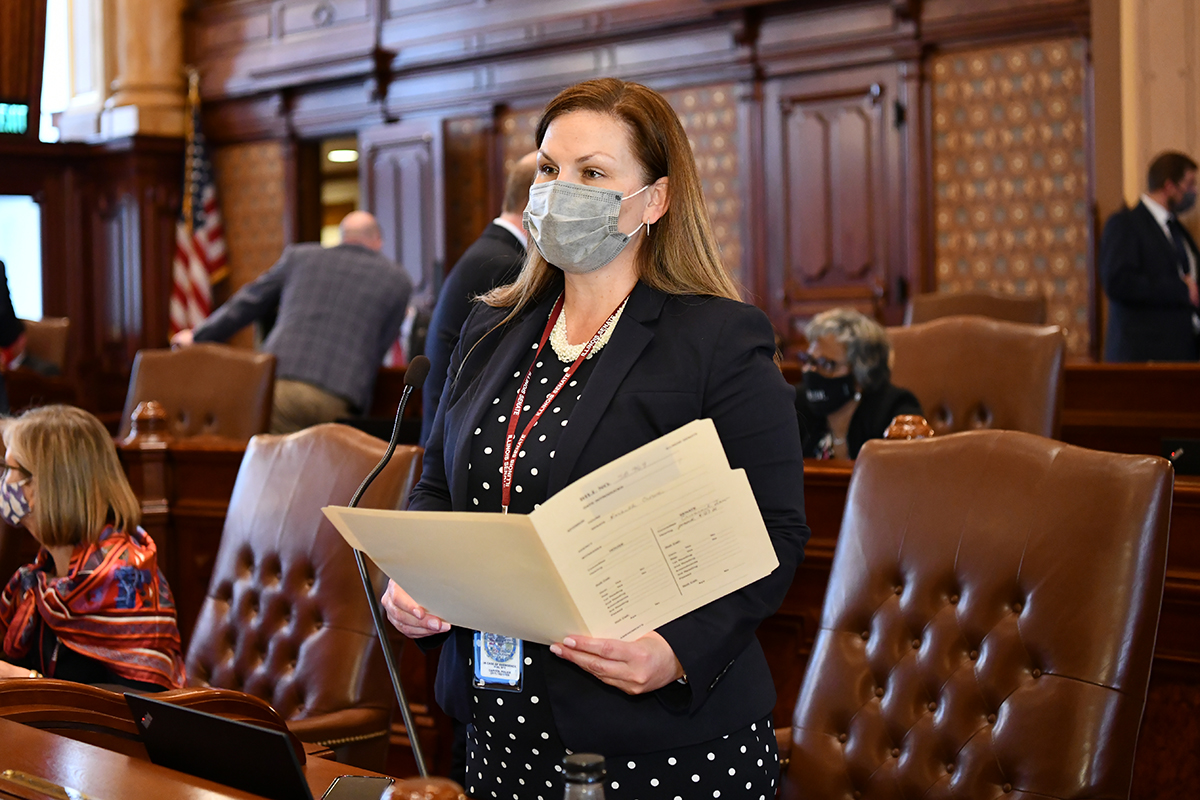
SPRINGFIELD – To give young people the tools to recognize and prevent opioid abuse, State Senator Rachelle Crowe (D-Glen Carbon) advanced legislation through the Senate to educate students on the dangers of opioid addiction.
“Young students and athletes may be prescribed opiates to relieve pain from injuries or surgeries before learning the risks of abuse,” Crowe said. “It’s important that kids know the health consequences associated with opioid misuse and dependency before entering high school.”
According to the Illinois Department of Public Health, 54 Illinois residents ages 15-24 fatally overdosed in 2019, with an additional 581 non-fatally overdosing. Crowe’s plan would begin engaging students in age-appropriate discussions on opioid abuse from kindergarten to eighth grade.
Read more: Crowe’s plan to educate students on addiction prevention passes Senate
- Details
- Category: Senator Tom Cullerton News
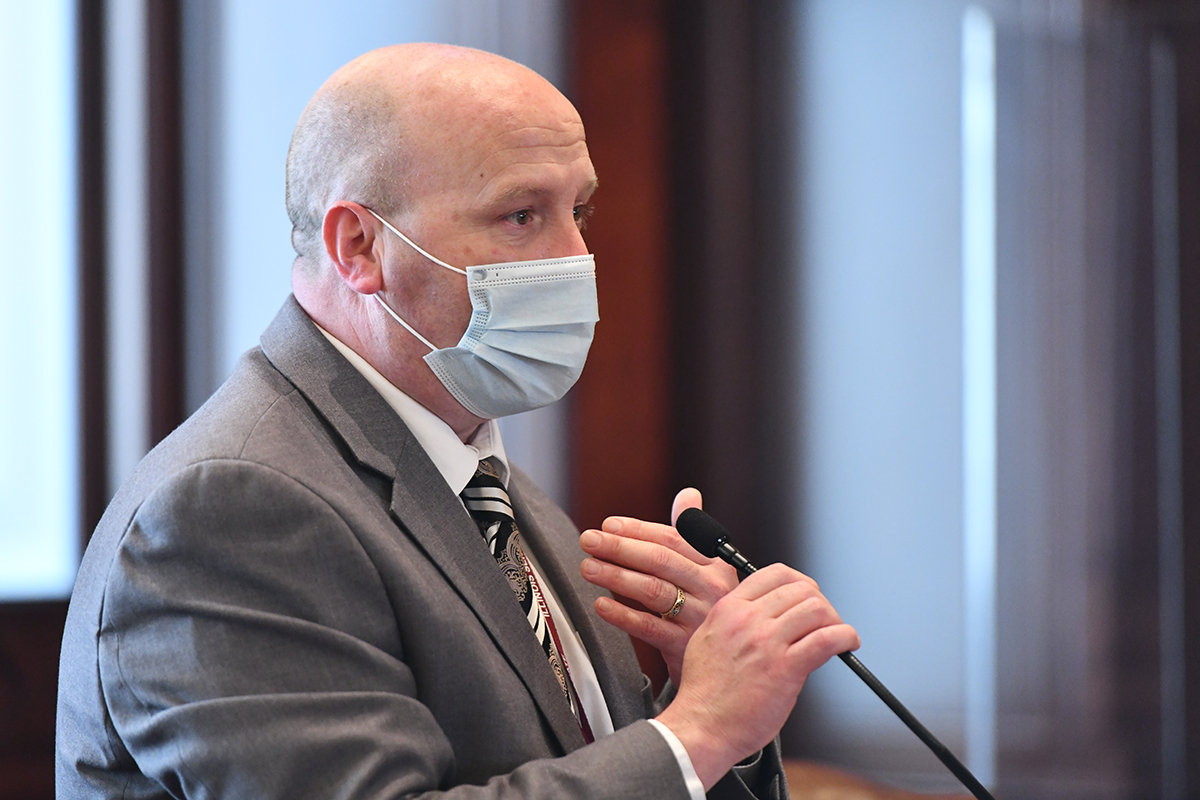
SPRINGFIELD – To undo discrimination the LGBTQ+ community historically faced in the military, State Senator Tom Cullerton (D- Villa Park) has passed legislation that would allow veterans who received an “Other than Honorable” discharge for their sexuality or gender identity to begin receiving state veterans benefits.
“As a veteran, I understand how much these benefits from the state can help veterans. From housing to assistance with burial, state benefits play a large role in supporting our veterans,” Cullerton said. “For someone not to receive this assistance solely because of their sexual orientation or gender identity is outdated and unfair.”
Although the “Don’t Ask, Don’t Tell” policy – which barred gay and lesbian military members from openly serving in the military – was repealed in 2011, people with OTH dischargers from years ago are still not able to receive state veterans benefits. According to a report from Harvard Law School, more than 100,000 service members were expelled from the military between World War II and 2011 for their actual or perceived sexual orientation.
Read more: Cullerton: One step closer to restoring benefits to LGBTQ+ veterans in Illinois
- Details
- Category: Senator Karina Villa News
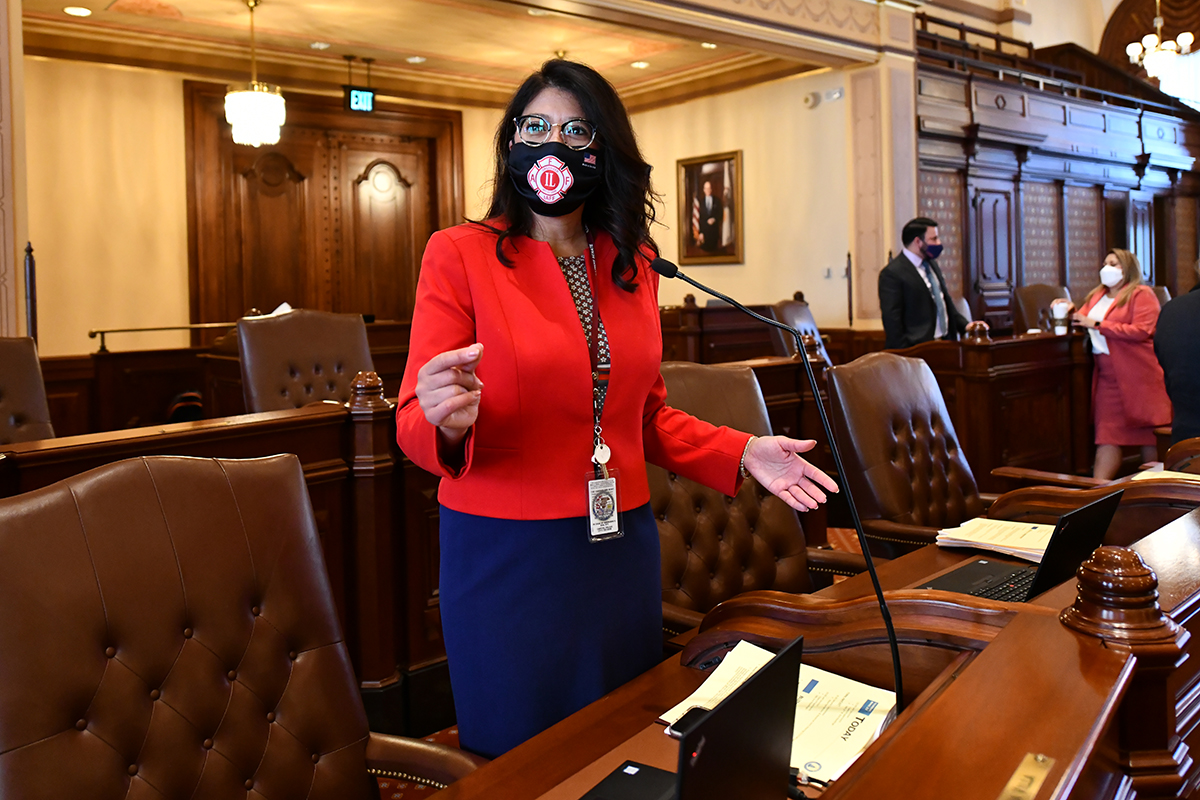
SPRINGFIELD – Employees who are found to be underpaid by their employers could be entitled to damages worth 5% of the monthly amount they were underpaid in addition to the full underpayment amount owed under an initiative proposed by State Senator Karina Villa (D-West Chicago), which passed the Senate Tuesday.
“Illinoisans who go to work day in and day out deserve to be justly compensated,” Villa said. “Wage theft is a crime, and this legislation will help deter the bad actors from taking advantage of those who cannot speak up.”
Currently, employees who do not receive wages in a timely manner are entitled to file a claim to recover their unpaid wages, plus damages totaling 2% of the amount of monthly underpayments. Villa’s legislation would increase the percentage paid in damages from 2% to 5% to more effectively deter wage theft by employers.
Read more: Villa plan would deter wage theft, protect employees’ paychecks
- Details
- Category: Senator Antonio Muñoz News
SPRINGFIELD – Biomarker testing — the medical technology used to determine medical risk factors like cancer — would be covered under state-regulated insurance plans under a measure sponsored by Assistant Majority Leader Tony (D-Chicago), which passed the Senate Tuesday.
“Inequalities exist in our health care services, especially for communities of color and people with lower income,” Munoz said. “Everyone deserves the right to benefit from this testing that can lead to better health outcomes, and this is essential for our fight against inequalities in our health care services.”
A “biomarker” is a sign of disease or abnormal function that can be measured in blood, tissue or bodily fluid. In cancer care, biomarkers are often used to help determine the best treatment for a patient. Biomarker testing analyzes a patient’s tissue, blood or other biospecimen for the presence of a biomarker.
Read more: Munoz advances plan to make genetic medical testing more accessible
- Details
- Category: Senator Robert Peters News
SPRINGFIELD – Illinoisans living with human immunodeficiency virus will soon be free from fear of criminal prosecution after a measure sponsored by State Senator Robert Peters (D-Chicago) cleared its final legislative hurdle Tuesday.
“Laws that criminalize HIV are outdated, dangerous, discriminatory, and out of line with current science,” Peters said. “This practice has no place in modern society. HIV is a medical condition and must be treated as such. Individuals living with it should not have to fear being punished simply because they are sick.”
Read more: Senate approves Peters’ HIV decriminalization proposal
- Details
- Category: Senator Rachelle Crowe News
SPRINGFIELD – To give young people the tools to recognize and prevent opioid abuse, State Senator Rachelle Crowe (D-Glen Carbon) advanced legislation through the Senate to educate students on the dangers of opioid addiction.
“Young students and athletes may be prescribed opiates to relieve pain from injuries or surgeries before learning the risks of abuse,” Crowe said. “It’s important that kids know the health consequences associated with opioid misuse and dependency before entering high school.”
According to the Illinois Department of Public Health, 54 Illinois residents ages 15-24 fatally overdosed in 2019, with an additional 581 non-fatally overdosing. Crowe’s plan would begin engaging students in age-appropriate discussions on opioid abuse from kindergarten to eighth grade.
Read more: Crowe’s plan to educate students on addiction prevention passes Senate
- Details
- Category: Senator Christopher Belt News
SPRINGFIELD – Legislation sponsored by State Senator Christopher Belt (D-Swansea) allowing students to choose whether or not to submit their ACT and SAT scores when applying to Illinois colleges and universities passed the General Assembly on Tuesday.
“Test anxieties are real. We know standardized tests are not reliable indicators of graduation rates,” Belt said. “Taking a snapshot of a student’s high school years and reducing it down to a single test isn't fair.”
The measure creates the Higher Education Fair Admissions Act, which would prohibit Illinois’ public universities from relying solely on a student’s ACT or SAT score to make an admissions decision.
Read more: Belt legislation updating university admissions in Illinois advances
- Details
- Category: Senator Scott Bennett News
DANVILLE – State Senator Scott Bennett (D-Champaign) announced the Illinois Department of Transportation has slated an estimated $45.3 million in infrastructure projects to improve roads throughout Vermilion County.
“Transportation infrastructure is an essential part of daily living for drivers who are traveling for work, running errands, or visiting our area,” Bennett said. “We need to continue to improve our state’s aging infrastructure by making our roadways more accessible for commuters.”
IDOT announced a number of major infrastructure projects representing an estimated $45.3 million in investments for the area, including:
Read more: Bennett announces $45.3 million in infrastructure improvements coming to Vermilion County
More Articles …
Page 478 of 764
